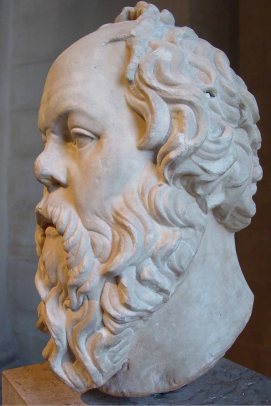In an interview with George Yancy, Peter Singer discuss the origins and nature of racism and speciesism: “I don’t see any problem in opposing both racism and speciesism, indeed, to me the greater intellectual difficulty lies in trying to reject one form of prejudice and oppression while accepting and even practicing the other. And here we should again mention another of these deeply rooted, widespread forms of prejudice and oppression, sexism. If we think that simply being a member of the species Homo sapiens justifies us in giving more weight to the interests of members of our own species than we give to members of other species, what are we to say to the racists or sexists who make the same claim on behalf of their race or sex? … The more perceptive social critics recognize that these are all aspects of the same phenomenon. The African-American comedian Dick Gregory, who worked with Martin Luther King as a civil rights activist, has written that when he looks at circus animals, he thinks of slavery: “Animals in circuses represent the domination and oppression we have fought against for so long. They wear the same chains and shackles.”
